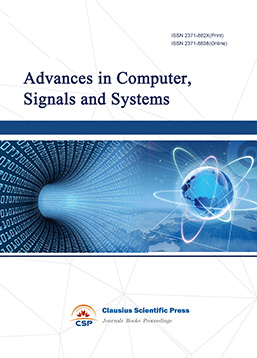Metacognition Centered Project-Based Learning Design for Human-AI Collaborative Skills Training
DOI: 10.23977/jaip.2024.070312 | Downloads: 30 | Views: 1426
Author(s)
Hua Xie 1, Dan Wang 2
Affiliation(s)
1 Faculty of Information Technology, Urban Vocational College of Sichuan, Chengdu, China
2 Faculty of Educational Studies, Urban Vocational College of Sichuan, Chengdu, China
Corresponding Author
Hua XieABSTRACT
The article explores the impact of digital transformation on the labor market, emphasizing the importance of human-AI collaborative abilities in the digital age. According to new trends in human-AI collaboration, metacognitive skills, human-AI communication abilities, and ethical responsibility will become the three core competencies. The article highlights that Project-Based Learning is an effective method for developing these capabilities. Project-Based Learning promotes self-reflection, effective communication, and ethical judgment skills in students through real-world contexts and inquiry-based learning. Furthermore, the article elaborates on incorporating metacognitive training into PjBL design to enhance students' learning outcomes and adaptability, equipping them for future work environments. By embedding these elements into educational practices, the article argues that students will be better prepared to navigate the complexities of working alongside AI in various professional settings.
KEYWORDS
Human-AI collaboration, Metacognition, Project-based learning, Instructional design, EducationCITE THIS PAPER
Hua Xie, Dan Wang, Metacognition Centered Project-Based Learning Design for Human-AI Collaborative Skills Training. Journal of Artificial Intelligence Practice (2024) Vol. 7: 102-106. DOI: http://dx.doi.org/10.23977/jaip.2024.070312.
REFERENCES
[1] Kolade, O., & Owoseni, A. (2022). Employment 5.0: The work of the future and the future of work. Technology in Society, 71, 102086.
[2] Memmert, L., & Bittner, E. (2022). Complex problem solving through human-AI collaboration: literature review on research contexts. Proceedings of the 55th Hawaii International Conference on System Sciences, 378-387.
[3] Siemon, D. (2022). Elaborating team roles for artificial intelligence-based teammates in human-AI collaboration. Group Decision and Negotiation, 31(5), 871-912.
[4] Lai, E. R. (2011). Metacognition: A literature review. Always learning: Pearson research report, 24, 1-40.
[5] Nelson, T. O., & Narens, L. (1994). Why investigate metacognition? In J. Metcalfe & A. Shimamura (Eds.), Metacognition: Knowing about knowing. Cambridge, MA: The MIT Press, 1-25.
[6] Sidra, S., & Mason, C. (2024, June). Reconceptualizing AI Literacy: The Importance of Metacognitive Thinking in an Artificial Intelligence (AI)-Enabled Workforce. In 2024 IEEE Conference on Artificial Intelligence (CAI) (pp. 1181-1186). IEEE.
[7] Cabrera, Á. A., Perer, A., & Hong, J. I. (2023). Improving human-AI collaboration with descriptions of AI behavior. Proceedings of the ACM on Human-Computer Interaction, 7(CSCW1), 1-21.
[8] Kokotsaki, D., Menzies, V., & Wiggins, A. (2016). Project-based learning: A review of the literature. Improving schools, 19(3), 267-277.
| Downloads: | 17302 |
|---|---|
| Visits: | 635504 |
Sponsors, Associates, and Links
-
Power Systems Computation

-
Internet of Things (IoT) and Engineering Applications

-
Computing, Performance and Communication Systems

-
Advances in Computer, Signals and Systems

-
Journal of Network Computing and Applications

-
Journal of Web Systems and Applications

-
Journal of Electrotechnology, Electrical Engineering and Management

-
Journal of Wireless Sensors and Sensor Networks

-
Journal of Image Processing Theory and Applications

-
Mobile Computing and Networking

-
Vehicle Power and Propulsion

-
Frontiers in Computer Vision and Pattern Recognition

-
Knowledge Discovery and Data Mining Letters

-
Big Data Analysis and Cloud Computing

-
Electrical Insulation and Dielectrics

-
Crypto and Information Security

-
Journal of Neural Information Processing

-
Collaborative and Social Computing

-
International Journal of Network and Communication Technology

-
File and Storage Technologies

-
Frontiers in Genetic and Evolutionary Computation

-
Optical Network Design and Modeling

-
Journal of Virtual Reality and Artificial Intelligence

-
Natural Language Processing and Speech Recognition

-
Journal of High-Voltage

-
Programming Languages and Operating Systems

-
Visual Communications and Image Processing

-
Journal of Systems Analysis and Integration

-
Knowledge Representation and Automated Reasoning

-
Review of Information Display Techniques

-
Data and Knowledge Engineering

-
Journal of Database Systems

-
Journal of Cluster and Grid Computing

-
Cloud and Service-Oriented Computing

-
Journal of Networking, Architecture and Storage

-
Journal of Software Engineering and Metrics

-
Visualization Techniques

-
Journal of Parallel and Distributed Processing

-
Journal of Modeling, Analysis and Simulation

-
Journal of Privacy, Trust and Security

-
Journal of Cognitive Informatics and Cognitive Computing

-
Lecture Notes on Wireless Networks and Communications

-
International Journal of Computer and Communications Security

-
Journal of Multimedia Techniques

-
Automation and Machine Learning

-
Computational Linguistics Letters

-
Journal of Computer Architecture and Design

-
Journal of Ubiquitous and Future Networks


 Download as PDF
Download as PDF